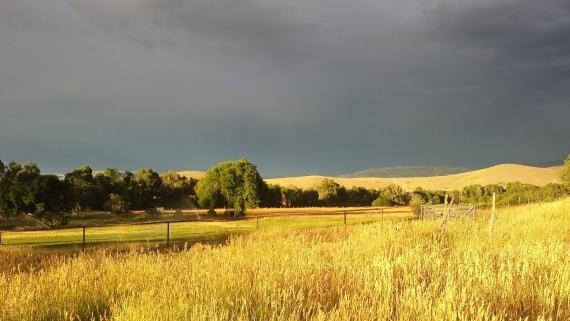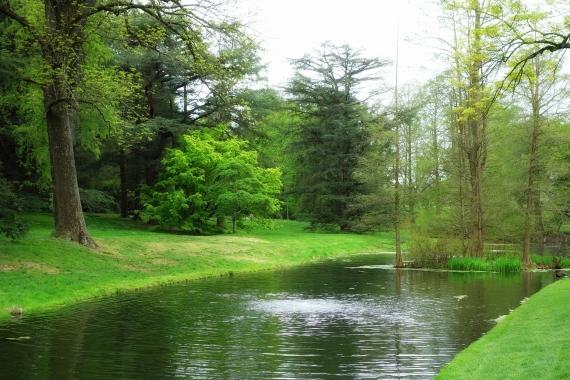Acres of Land For Sale - What's The Best Acreage Size To Invest In?
Posted: January 31, 2016 by LandCentury

If youve decided to invest in land, one of your first concerns may be the size of the lot. After all, the more acres you have, the higher the return right? Not necessarily. Many investors ask what size acreage is the best to invest in, but the answer isnt as clear-cut as you would imagine. There really is no right or wrong answer. The amount of acreage you invest in will depend on one key answer:
What Will the Land Be Used For?
When it comes to acreage, the primary concern is the use of the property and your ROI goals.
Farming
If your goal is to farm the land and generate income, youll need more than just an acre of land. Micro-farms may be able to operate on 10-20 acres, but your income will be limited in this case. For traditional and diverse farming operations, youll need (ideally) hundreds of acres.
Why so many acres? If you plan on raising livestock, youll need plenty of space for grazing. And the larger your herds and flocks, the more space youll need. With 160 acres, you would have plenty of space for a 50-ewe flock, a herd of at least 30 cows, turkeys and chickens. This would also give you space to grow berries, vegetables and flowers to sell (or eat). You would also have space for a woodlot that could be used either as timberland or as firewood to heat your home (if your plans are self-sustainability).
With a smaller number of acres (10-20), its possible to raise smaller herds and flocks, and to grow a smaller garden. But farming becomes less feasible (on a commercial level) with anything less than 10 acres. Remember, the average farm size in America is 441 acres, but these are typically large commercial farms. By comparison, the average farm size in 1900 was 147 acres. These were mostly family-owned farms, and this is a more realistic figure if your goal is to start a smaller, local farm. Dont be dissuaded by others who claim you need several hundreds of acres to operate a commercial farm business.
Building a Home
If youre planning on developing the land and building a home, you wont need nearly as much land as you would with a farm although homes with high acreage fetch a higher price tag. More is almost always better, but there really is no sweet spot here.
I would recommend nothing less than 0.2 acres for home development. Ideally, I would choose one acre as the bare minimum if that was in the budget. But smaller properties may be worthwhile if they offer unique amenities, lake views, waterfront access, great location, etc. Of course, high acreage will mean nothing if theres no demand for it. Check local listings and recent sales in the area you want to invest in to get a feel for what buyers are looking for. If homes with 2-3 acres of land are selling in just a few weeks, look for lots of similar sizes when developing the home. If large acreage properties tend to sit on the market for months or years, you may consider buying in another location or purchasing a smaller lot.
In most locations, higher acreage will demand a higher price and sell quickly. People value privacy, and thats exactly what acreage gives them.
Building an Apartment Complex
If your goal is to develop an apartment complex, the ideal acreage will depend on the location of the proposed community. This is a process that will require a great deal of planning, and youll need to work closely with the local planning and building office. With that said, most districts have their own lot area requirements per family.
Some lot size requirements (per family) include:
* Bedford, MA: 40,000 sq. ft.
* Cook County, IL (District R1): 5 acres
* Miami Beach, FL: 40,000 sq. ft.
* Oyster Bay, NY (District B): 1 acre
* Fauquier County, VA: 7,000 sq. ft. if water and sewer are available
The first three on the list are on the extreme-high end of the spectrum. Most districts have a requirement somewhere around 10,000 sq. ft. per family. Generally, the availability of water and sewer connections will be the primary factors when it comes to required lot sizes. These requirements are put in place for sanitary and public health reasons. If public water and sewer connections are available on-site, the lot size requirements are significantly smaller than properties with private water and sewer connections.
Youll need to refer to your local laws to determine what size acreage youll need. You may consider investing in a little more than the minimum requirement, as this may attract more tenants.
For Purely Investment Purposes
If youre simply looking to purchase a piece of land and hold onto it, the more quality acreage you can invest in, the higher the return will be. How do we define quality acreage? Quality land is land that you can use and access. You can purchase several thousands of acres for relatively cheap but theyll likely be inaccessible and unusable. If you cant actually step foot on the property legally without easements in place or the land is completely unfit for any use, who would want to purchase the land in the future? No one.
Instead, buy as much land as you can in a desirable location that either has the potential for growth or is already experiencing growth. Look for quality land that can be built on or used for recreational purposes. In other words dont just buy land to buy land.
You wouldnt buy a home just to add it to your real estate portfolio without checking the state and value of the property first. Apply the same principles when buying land. Go for quality. Buy as much as you can afford.
Ultimately, the amount of acreage you purchase will be dependent on the purpose of the land and your budget. Farms will require significantly more land, but residential development may only have small acreage requirements. If youre just holding onto the land, the more quality land you can buy, the better.
What Will the Land Be Used For?
When it comes to acreage, the primary concern is the use of the property and your ROI goals.
Farming
If your goal is to farm the land and generate income, youll need more than just an acre of land. Micro-farms may be able to operate on 10-20 acres, but your income will be limited in this case. For traditional and diverse farming operations, youll need (ideally) hundreds of acres.
Why so many acres? If you plan on raising livestock, youll need plenty of space for grazing. And the larger your herds and flocks, the more space youll need. With 160 acres, you would have plenty of space for a 50-ewe flock, a herd of at least 30 cows, turkeys and chickens. This would also give you space to grow berries, vegetables and flowers to sell (or eat). You would also have space for a woodlot that could be used either as timberland or as firewood to heat your home (if your plans are self-sustainability).
With a smaller number of acres (10-20), its possible to raise smaller herds and flocks, and to grow a smaller garden. But farming becomes less feasible (on a commercial level) with anything less than 10 acres. Remember, the average farm size in America is 441 acres, but these are typically large commercial farms. By comparison, the average farm size in 1900 was 147 acres. These were mostly family-owned farms, and this is a more realistic figure if your goal is to start a smaller, local farm. Dont be dissuaded by others who claim you need several hundreds of acres to operate a commercial farm business.
Building a Home
If youre planning on developing the land and building a home, you wont need nearly as much land as you would with a farm although homes with high acreage fetch a higher price tag. More is almost always better, but there really is no sweet spot here.
I would recommend nothing less than 0.2 acres for home development. Ideally, I would choose one acre as the bare minimum if that was in the budget. But smaller properties may be worthwhile if they offer unique amenities, lake views, waterfront access, great location, etc. Of course, high acreage will mean nothing if theres no demand for it. Check local listings and recent sales in the area you want to invest in to get a feel for what buyers are looking for. If homes with 2-3 acres of land are selling in just a few weeks, look for lots of similar sizes when developing the home. If large acreage properties tend to sit on the market for months or years, you may consider buying in another location or purchasing a smaller lot.
In most locations, higher acreage will demand a higher price and sell quickly. People value privacy, and thats exactly what acreage gives them.
Building an Apartment Complex
If your goal is to develop an apartment complex, the ideal acreage will depend on the location of the proposed community. This is a process that will require a great deal of planning, and youll need to work closely with the local planning and building office. With that said, most districts have their own lot area requirements per family.
Some lot size requirements (per family) include:
* Bedford, MA: 40,000 sq. ft.
* Cook County, IL (District R1): 5 acres
* Miami Beach, FL: 40,000 sq. ft.
* Oyster Bay, NY (District B): 1 acre
* Fauquier County, VA: 7,000 sq. ft. if water and sewer are available
The first three on the list are on the extreme-high end of the spectrum. Most districts have a requirement somewhere around 10,000 sq. ft. per family. Generally, the availability of water and sewer connections will be the primary factors when it comes to required lot sizes. These requirements are put in place for sanitary and public health reasons. If public water and sewer connections are available on-site, the lot size requirements are significantly smaller than properties with private water and sewer connections.
Youll need to refer to your local laws to determine what size acreage youll need. You may consider investing in a little more than the minimum requirement, as this may attract more tenants.
For Purely Investment Purposes
If youre simply looking to purchase a piece of land and hold onto it, the more quality acreage you can invest in, the higher the return will be. How do we define quality acreage? Quality land is land that you can use and access. You can purchase several thousands of acres for relatively cheap but theyll likely be inaccessible and unusable. If you cant actually step foot on the property legally without easements in place or the land is completely unfit for any use, who would want to purchase the land in the future? No one.
Instead, buy as much land as you can in a desirable location that either has the potential for growth or is already experiencing growth. Look for quality land that can be built on or used for recreational purposes. In other words dont just buy land to buy land.
You wouldnt buy a home just to add it to your real estate portfolio without checking the state and value of the property first. Apply the same principles when buying land. Go for quality. Buy as much as you can afford.
Ultimately, the amount of acreage you purchase will be dependent on the purpose of the land and your budget. Farms will require significantly more land, but residential development may only have small acreage requirements. If youre just holding onto the land, the more quality land you can buy, the better.




